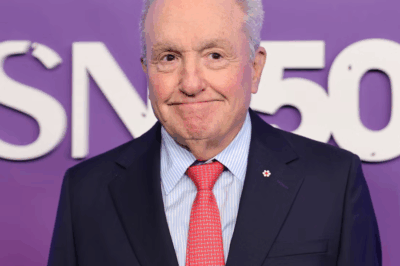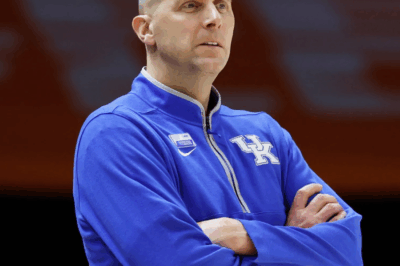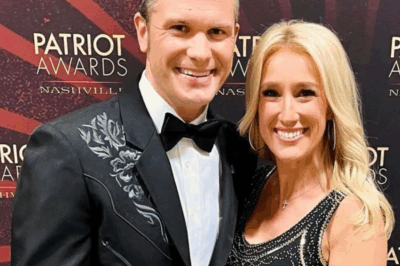Celebrating the NBA’s 75th Anniversary: Honoring the Pioneers Who Broke Barriers in the 1950-51 Season
As the National Basketball Association (NBA) marks its 75th anniversary, it is a momentous occasion to reflect on the league’s storied history and the trailblazers who helped shape its legacy.
Among these pioneers, three legendary figures stand out for their groundbreaking contributions and enduring impact: Earl Lloyd, Chuck Cooper, and Nat “Sweetwater” Clifton.
Their debut seasons in the early 1950s not only signaled a new era for professional basketball but also marked significant milestones in the ongoing struggle for racial equality in sports and American society.
This comprehensive review delves into their lives, careers, and the profound significance of their first appearances on the NBA court.
It also explores the broader context of the league’s evolution, the social challenges they faced, and the legacy they left behind—an inspiring story of perseverance, courage, and progress.
The Birth of the NBA and the Road to Integration
The National Basketball Association, as we know it today, officially began in 1946 under the name Basketball Association of America (BAA). It later merged with the National Basketball League (NBL) in 1949, forming the NBA. This period marked a transformative moment for professional basketball, which was gradually growing in popularity across the United States.
However, the league’s early years were characterized by racial segregation, mirroring the broader societal divisions of the time. African American players were largely excluded from the league, confined to segregated teams and leagues. It was only in the early 1950s that the NBA began to integrate, thanks in large part to the courageous efforts of a few pioneering players who challenged racial barriers.
Earl Lloyd: The First Black Player in the NBA
Earl Lloyd’s journey to becoming the first African American player in the NBA is a story of resilience and determination. Born in 1928 in Alexandria, Virginia, Lloyd’s basketball talent was evident from a young age.
He played college basketball at West Virginia State University, where he showcased his skills and leadership qualities.
Lloyd’s NBA debut came on October 31, 1950, when he played for the Washington Capitols.
Although he was not the first African American to play professional basketball overall—players like Wataru “Wat” Misaka had played in the NBA’s predecessor leagues—Lloyd holds the distinction of being the first African American to play in the NBA itself.
His debut was a historic moment, symbolizing a step forward in racial integration within the league.
Throughout his career, Lloyd faced significant racial hostility and discrimination, both on and off the court. Despite these challenges, he persevered and became a respected figure in the league.
He played for several teams, including the Detroit Pistons and the Baltimore Bullets, and later transitioned into coaching and mentoring roles, advocating for racial equality and diversity in sports.
Lloyd’s legacy extends beyond his playing career. He was a trailblazer who broke down barriers, paving the way for future generations of African American players.
His contributions to the game and his role as a pioneer remain an enduring part of NBA history.
Chuck Cooper: Breaking the Color Barrier in the Draft
Chuck Cooper’s story is equally inspiring. Born in 1926 in Pittsburgh, Pennsylvania, Cooper was a standout basketball player at Duquesne University. His talent and leadership earned him recognition as one of the best players of his era.
In 1950, Cooper made history as the first African American player drafted into the NBA.
He was selected by the Boston Celtics in the second round of the NBA Draft, a groundbreaking achievement that challenged prevailing racial prejudices and opened doors for other Black players.
Cooper’s debut with the Celtics was a significant milestone. It demonstrated that talent and skill could no longer be ignored due to race.
Despite facing hostility and discrimination, Cooper persevered, earning respect from teammates and fans alike.
His presence on the court helped challenge stereotypes and proved that African American athletes belonged at the highest levels of professional basketball.
While Cooper’s career was relatively brief—he played for a few seasons before leaving the league—his impact was profound. He became a symbol of hope and progress for African Americans aspiring to compete at the highest levels of sport.
Nat “Sweetwater” Clifton: The First African American to Sign an NBA Contract
Nat “Sweetwater” Clifton’s journey to the NBA was marked by perseverance and determination. Born in 1922 in Arkansas, Clifton’s basketball career began in the segregated leagues of New York City.
His exceptional talent caught the attention of scouts, and he eventually signed with the New York Knicks in 1950.
Clifton’s signing was historic, as he became the first African American to sign an NBA contract, predating Lloyd’s debut by a few months. His debut on November 3, 1950, marked another crucial milestone in the league’s integration efforts.
Clifton’s presence on the court was a testament to his skill and resilience, overcoming the racial barriers that had long excluded Black players from professional basketball.
Clifton’s career extended beyond his playing days. He was an active advocate for civil rights and worked tirelessly to promote racial equality in sports and society.
His contributions helped foster a more inclusive environment within the NBA and set the stage for future generations of Black athletes.
The Broader Impact of These Pioneers
The stories of Earl Lloyd, Chuck Cooper, and Nat Clifton are more than just tales of individual achievement—they represent the broader struggle for racial equality and social justice in America.
Their courage and perseverance challenged the status quo, forcing the league and society at large to confront their biases and prejudices.
Their debut seasons in the early 1950s coincided with the burgeoning Civil Rights Movement, which sought to dismantle segregation and promote equal rights.
In many ways, these players became symbols of hope and progress, inspiring countless others to pursue their dreams despite formidable obstacles.
The Legacy and Continuing Influence
Today, the NBA celebrates its 75th anniversary, recognizing the pioneers who helped shape its inclusive and diverse identity.
The league has evolved into a global phenomenon, with players of all backgrounds showcasing their talents on the world stage.
The legacy of Earl Lloyd, Chuck Cooper, and Nat Clifton is embedded in the league’s history and culture.
They paved the way for generations of African American players, including legends like Bill Russell, Magic Johnson, Michael Jordan, LeBron James, and countless others who have followed in their footsteps.
In honoring these pioneers, the NBA also acknowledges its responsibility to promote diversity, equity, and inclusion.
Initiatives aimed at fostering opportunities for underrepresented groups, addressing social issues, and promoting community engagement continue to be central to the league’s mission.
Conclusion: Celebrating Courage, Progress, and the Future
As the NBA commemorates its 75th anniversary, reflecting on the groundbreaking contributions of Earl Lloyd, Chuck Cooper, and Nat Clifton is essential.
Their bravery and perseverance not only transformed professional basketball but also contributed to the ongoing fight for racial equality in America.
Their stories serve as powerful reminders of what can be achieved through determination, courage, and a commitment to justice.
As the league continues to grow and evolve, honoring these pioneers ensures that their legacy endures, inspiring future generations to dream big and break barriers.
News
Maggie Sajak’s viral TikTok hid a major clue. We decoded it, and it reveals the one secret that could end Ryan and Vanna’s historic run. You need to see this.
Maggie Sajak’s viral TikTok hid a major clue. We decoded it, and it reveals the one secret that could end…
Lorne Michaels Drops Surprising Hint: Could Season 51 Mark the End of an Era for Saturday Night Live?
Lorne Michaels Drops Surprising Hint: Could Season 51 Mark the End of an Era for Saturday Night Live? In a…
Mark Pope Reacts to Kentucky’s Disappointing 84-70 Loss to Georgetown: An In-Depth Analysis
Mark Pope Reacts to Kentucky’s Disappointing 84-70 Loss to Georgetown: An In-Depth Analysis In the world of college basketball, few…
Julianne Hough Unveils Stunning Bald Look After Bold Bet with Brother Derek Hough: A Deep Dive into the Transformation and Its Meaning
Julianne Hough Unveils Stunning Bald Look After Bold Bet with Brother Derek Hough: A Deep Dive into the Transformation and…
Ryan Rollins: The Rising Star Making Waves in Milwaukee Bucks’ Breakout Season
Ryan Rollins: The Rising Star Making Waves in Milwaukee Bucks’ Breakout Season A New Chapter for Ryan Rollins and the…
Breaking News: Pete Hegseth and Wife Jennifer Rauchet Make Significant Life Decision That Sparks Public Conversation
Breaking News: Pete Hegseth and Wife Jennifer Rauchet Make Significant Life Decision That Sparks Public Conversation In a development that…
End of content
No more pages to load












